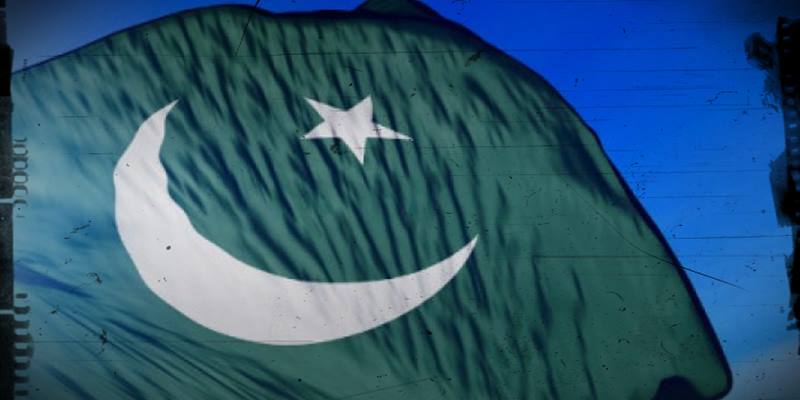Pakistanis feel angry and betrayed by their cricketers, whose behaviour has become a depressing metaphor for all the ills besetting the country is what I had to say to Amanda Hodge whose report for The Australian (September 04, 2010) is reproduced below:
ON Monday the brutal treatment meted out to a cluster of hapless donkeys paraded as proxy cricketers through the streets of Lahore seemed an ominous sign of the fate awaiting Pakistan’s tainted players.
The Prime Minister bowed his head at the shame the players had brought on the nation and the President vowed to launch an immediate inquiry.
On Tuesday an incensed Pakistani lawyer even lodged a claim of treason – a crime punishable by death – in the Lahore High Court against the accused players and the Pakistan Cricket Board.
By Friday the three cricketers accused of involvement in the latest international betting scandal had become innocent pawns in a larger conspiracy to discredit Asian cricketing nations, Muslims and Pakistani national pride.
Even by Pakistan’s own majestic spin standards, it’s been an impressive turnaround.
The arbiters of Pakistani national pride – its politicians and Urdu language media commentators – have been hard at work this week casting doubt on the veracity of The News of the World sting which appeared to expose Pakistani player collusion in the scourge of spot-fixing in cricket.
The shift began mid-week with the country’s own Interior Minister Rehman Malik who, just days after promising a full inquiry and swift action against those found guilty, suggested the entire tabloid expose was a conspiracy.
“This incident should not have happened. We want to ascertain if there is any conspiracy against the team or to defame Pakistan,” Malik said.
“We know that there have been conspiracies against Pakistan in the past – we will consider that angle also. We want to get the facts and get them exonerated.”
Coinciding with that volte face was a news story which first appeared in the country’s own Daily Mail newspaper.
The story, repeated by a cluster of news channels without a single source, alleged the spot-fixing saga was a giant fraud engineered by India’s intelligence agency RAW in collusion with ICC president Sharad Pawar, The News of the World and the Pakistani fixer, Mazhar Majeed, at the centre of the allegations.
By Thursday the turnaround was complete with Pakistan’s own High Commissioner to London Wajid Shamsul Hassan declaring the players were innocent and had been set up, an allegation the British tabloid dismissed as “ludicrous”.
Just hours before the International Cricket Council temporarily suspended team captain Salman Butt and bowlers Mohammed Asif and Mohammed Amer on charges of improperly influencing the result of a game, Hassan said the three had opted not to play again on the England tour because of the “mental torture” the allegations had caused.
When asked if he believed the players were innocent, Hasan replied: “Yes I believe in their innocence. I think we will go to the court to defend them.”
While the rest of the cricketing world may watch slack-jawed at Pakistani officials’ extraordinary off-pitch spin, their new indignant line is taking hold among the nation’s dejected cricket fans
“It’s almost as though, having first acknowledged the issue, people are now attempting to defuse it by becoming self-righteous,” Najam Sethi, Pakistani columnist and editor of the liberal Friday Times newspaper, said yesterday, adding there were now two discernible strands of public discourse.
“The first is that it’s understandable, these boys come from the backwaters.
“The board is responsible for not instituting a system of rewards and punishment.
“Then there is this whole conspiracy theory that, while it may be true our boys are susceptible to such greed, the world was also against us and this was a set-up.
“I have been in different homes this week – middle class and upper class – where these discussions have been taking place. There’s a general acknowledgment of wrongdoing, but then out come all sorts of conspiracy theories to explain it.”
“Whether it’s in cricket, politics or aid, it’s all part of the grand conspiracy against Muslims in general and Pakistan in particular.”
Pakistan really does not have time for this.
The country is besieged by monolithic problems, not least of which are the floods that have left eight million people homeless and continue to cause devastation.
The disaster has exacerbated the country’s economic woes, washing away infrastructure worth as much as two per cent of the entire nation’s GDP, and sunk it deeper into a punitive debt to the IMF.
Pakistan is also struggling to contain a rising Islamic insurgency and sectarian violence which flared again this week with a triple suicide bombing in Lahore that killed 31 people and injured more than 280.
The government now fears the cricket crisis will harm attempts to raise the foreign aid required to rebuild the stricken nation.
Raza Rumi, the editor and founder of online social and current affairs website Pak Tea House, agrees the timing could not be worse for Pakistan.
“The international community has already been hesitant to give aid as required because of these issues of transparency and corruption and this reinforces this view that you can’t trust Pakistanis with money,” he said.
But he insists Pakistanis feel angry and betrayed by their cricketers, whose behaviour has become a depressing metaphor for all the ills besetting the country.
“There’s massive disappointment and anger that this could happen at a time when the country is going through such a bad phase,” he said. “That’s the worst part of this whole fiasco; it comes at a time when the collective morale is so low.”



